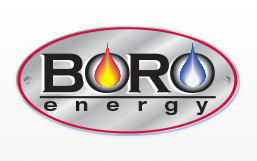Things to Consider Before You Convert to Natural Gas
One of our best qualities as New Yorkers is our determination to see an idea through to its conclusion. This street-wise stubbornness can get you far in the big city… most of the time. But if you’re dead-set on converting from Oilheat to natural gas, we’re going to ask you to curb some of that sheer willpower for a moment so we can break down how a natural gas conversion would affect you, and what it would entail if you went through with it.
For starters, we believe most New Yorkers should choose Oilheat over natural gas. Oilheat is gradually becoming more affordable and efficient, with prices at their lowest level in almost a decade, and though we don’t have a crystal ball, we anticipate that this trend will continue as Oilheat technology further advances. Then there are the environmental factors to consider; New York City-mandated Bioheat® fuel burns cleaner than natural gas, and is shown to positively affect Oilheat equipment over time by cleaning system components as it burns. If that isn’t enough reason to stick with Oilheat, consider this little tidbit: converting your equipment to accommodate natural gas is more expensive than upgrading to state-of-the-art Oilheat equipment.
Still want to go through with the conversion? Ok, but don’t call the utilities! As a full service home comfort provider, we’re certified to work on both Oilheat and natural gas systems, and can help you through every step of the fuel conversion process. Here’s how it works:
- The process begins with an evaluation of your home to determine the scope of the conversion. We'll tell you what steps are needed and give you a clear idea of the cost. If a gas line and a gas meter are present, the project can be simple and fast-moving. If the property needs to have gas service installed, the work will take longer and the cost will be greater.
- We’ll take you through our full range of options in new gas equipment, including high-efficiency boilers and hot water heaters. We'll determine the building's demand for heat and hot water, then explain your options so that you can choose the most suitable equipment.
- If you're ready to make the conversion, we'll plan the equipment switch-out thoroughly to eliminate complications and minimize downtime. We’ll remove the oil-fired equipment and oil tank, then our certified gas installers will set up your new equipment meticulously to ensure safety, efficiency and code compliance. We’ll also inform you if your new equipment qualifies for government tax credits or other incentives.
At Boro Energy, we offer both Oilheat and natural gas, so we’re here to simply provide you with all the facts so you can make the right decision. No matter what you choose to do, we’re happy to accommodate you and give you the best energy rates you’ll find. Contact Boro Energy today for more information about natural gas conversion or to schedule an evaluation.












